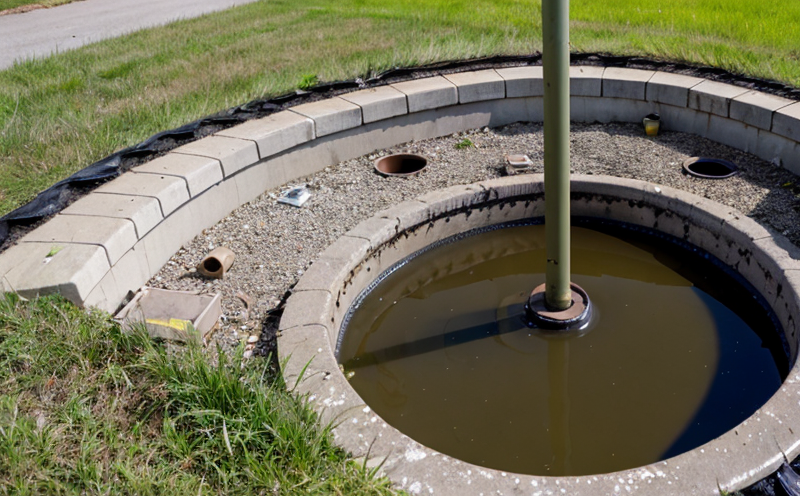Sewage treatment inspection
Effective sewage treatment is a cornerstone of environmental health and safety (EHS) management. This process involves several critical stages designed to ensure that waste water is cleaned before it is released back into the environment, thereby preventing pollution and safeguarding public health. In this context, sewage treatment inspections are essential for verifying compliance with regulatory standards and ensuring the efficiency and reliability of the treatment processes.
These inspections involve a comprehensive evaluation of various components and parameters within the sewage treatment plant (STP). Key areas include primary sedimentation tanks, secondary clarifiers, biological reactors, disinfection units, and effluent monitoring systems. The inspection process is vital for identifying potential issues that could lead to non-compliance or inefficiencies in the treatment process.
During an inspection, we assess several critical parameters such as dissolved oxygen levels, biochemical oxygen demand (BOD), chemical oxygen demand (COD), total suspended solids (TSS), and pH levels. These measurements are crucial for ensuring that the effluent quality meets stringent environmental standards set by regulatory bodies like the Environmental Protection Agency in the United States or similar organizations worldwide.
The inspection also involves reviewing operational procedures, maintenance records, and staff training to ensure a robust and sustainable operation. Compliance with international standards such as ISO 14001:2015 for environmental management systems is a key aspect of our service. This certification ensures that the STP operates in an environmentally responsible manner, contributing positively to both local ecosystems and global sustainability goals.
In summary, sewage treatment inspections are vital for maintaining high standards of EHS practices. They help ensure not only regulatory compliance but also the continuous improvement of processes through regular audits and performance evaluations. This approach fosters a culture of responsibility and accountability within organizations, ultimately leading to safer, healthier environments for all stakeholders.
Applied Standards
The sewage treatment inspection service adheres to several key international standards that ensure the accuracy and reliability of our testing methods:
- American Public Health Association (APHA) Standard Methods for the Examination of Water and Wastewater: This standard provides a comprehensive set of procedures for water quality analysis, which is essential for evaluating the effectiveness of sewage treatment processes.
- European Committee for Standardization (CEN) EN 12566-2:2019: This European standard specifies requirements and test methods for determining the performance of sewage sludge digesters. It helps in assessing the efficiency of digestion units within STPs, contributing to better resource recovery.
- International Organization for Standardization (ISO) 14001:2015: This standard sets out requirements for an environmental management system that enables organizations to enhance their environmental performance. By adhering to this standard, we ensure our inspections are aligned with global best practices in EHS.
- World Health Organization (WHO) Guidelines on Drinking Water Quality: While not directly related to sewage treatment, these guidelines provide valuable insights into the quality parameters that should be achieved before discharge of treated effluent. This ensures that the released water is safe for the environment and public health.
By following these standards, we guarantee that our inspections are conducted with the highest level of precision and adherence to best practices in the field of environmental health and safety.
Quality and Reliability Assurance
- Sample Collection and Handling: Our team adheres strictly to ISO 17025:2017 guidelines for laboratory testing, ensuring that all samples are collected and handled in a manner that preserves their integrity. This includes the use of appropriate containers, refrigeration where necessary, and documentation of collection conditions.
- Testing Equipment: We employ state-of-the-art instrumentation such as spectrophotometers, flow meters, and automated sampling systems to ensure accurate and precise measurements. Regular calibration and maintenance are performed to uphold equipment reliability.
- Data Analysis: Our data analysis process includes both manual calculations and software-based verification to minimize errors. All results are cross-checked against industry benchmarks to ensure accuracy and consistency.
- Certification and Reporting: Once the inspection is complete, detailed reports are generated that include all relevant test data along with recommendations for improvement where necessary. These reports adhere to international standards such as ISO 19011:2018, ensuring they are comprehensive and actionable.
The combination of these quality assurance measures ensures that our sewage treatment inspections are both reliable and trustworthy, providing clients with the confidence needed to make informed decisions regarding their EHS practices.
Environmental and Sustainability Contributions
Sewage treatment inspections play a pivotal role in supporting global sustainability goals. By ensuring that STPs operate efficiently and effectively, we contribute significantly to reducing environmental impact. This includes minimizing greenhouse gas emissions from methane production during digestion processes, preventing contamination of surface water bodies, and promoting resource recovery through effective sludge management.
Our service also supports the circular economy by encouraging the reuse of treated effluent for irrigation or industrial processes where appropriate. This reduces reliance on freshwater resources and promotes sustainable urban development. Furthermore, our adherence to ISO 14001:2015 ensures that we continuously improve our environmental performance, contributing to a more resilient and sustainable future.
Through these efforts, we not only meet but exceed regulatory expectations, fostering trust among stakeholders and promoting responsible governance in the management of waste water resources. Our commitment to sustainability is reflected in every aspect of our service, from initial consultation through final report generation.





